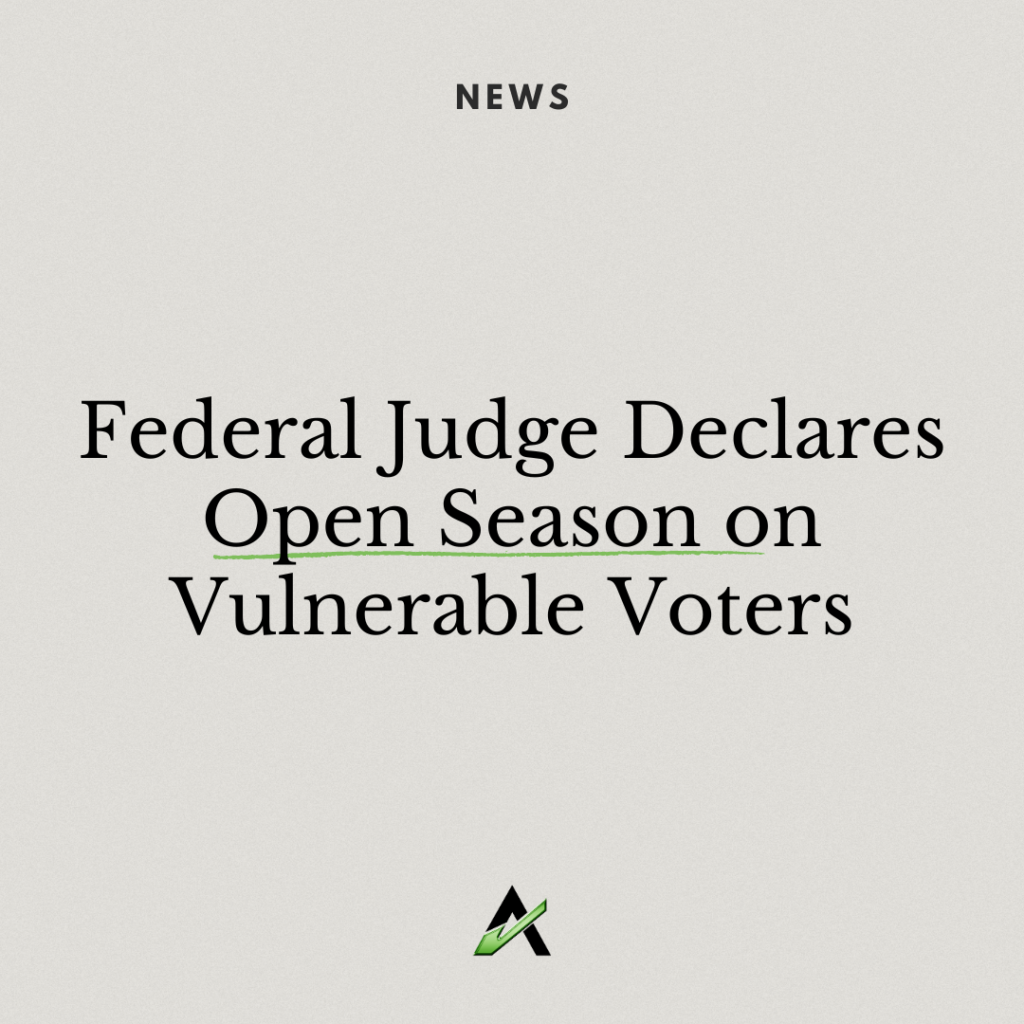A federal judge has ruled that certain provisions of Senate Bill 1 aimed at stopping illegal vote harvesting cannot be enforced. Judge Xavier Rodriguez claims the laws are too vague and restrict free speech. The plaintiffs in the case are “non-partisan” groups like the League of Women Voters or LULAC (League of United Latin American Citizens) that often challenge election laws under the guise of helping voters. Attorney General Ken Paxton has already said he will challenge this ruling “immediately,” but until then, voters are vulnerable to ballot harvesters.
Entire sections of the Election Code are dedicated to keeping voters safe at the polls and keeping their choices secret. Electioneering is prohibited within 100 feet of the entrance of a polling place. Voters in line must keep their sample ballots, candidate mailers, or anything else that could be considered electioneering reasonably concealed.
Once you have your ballot, only an election official is allowed to approach you, talk to you, look over your shoulder, or touch your ballot, and only with a legal reason. If an election official assists you in any way, appointed poll watchers may observe and ensure that you are not coerced or influenced in any way. You may bring someone to assist you with voting under specific criteria, and only if they provide their information and you give your consent. Voters can feel safe, secure, and free to make their own choices inside the polling location.
People voting by mail should have all of those same protections. When those voters have their ballots in their hands they should be equally free from electioneering, coercion, intimidation, and any unrequested or illegal assistance. This is the purpose of laws like Senate Bill 1 to protect voters.
Candidates or their representatives should be 100 feet away from voters with a ballot. If they knock on a door and discover that a voter has a live ballot (unvoted and unsealed) they should excuse themselves and walk away. They should not be near the voter and their ballot.
Section 64.031 of the Election Code allows for the assistance of a voter only if the voter cannot prepare or read the ballot because of a physical disability that renders the voter unable to write or see or an inability to read the language in which the ballot is written. People are not allowed to loiter around polling locations asking voters if they want assistance. That assistance must also be requested by the voter. It should be the same process for voters at home.
A residence with a ballot inside has now become a polling place. Seeing it that way should make the provisions of the law very clear.

